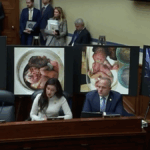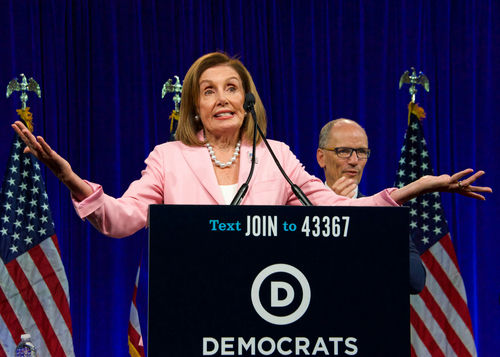
Pro-Life Groups Press US Attorney Jeanine Pirro To Investigate 5 Late-Term Abortions In DC
May 27, 2025
Trump Spanks Harvard
May 27, 2025Italy Blows Off Historic Health Deal with WHO
Italy chose to abstain from a critical World Health Organization pandemic agreement, raising questions about national sovereignty versus international cooperation in future health crises. The agreement aims to prevent COVID-19 pandemic mistakes through improved international coordination, monitoring, and vaccine access. Italy justified its abstention by emphasizing “the primacy of national sovereignty” in public health administration.
Italy Stands Alone Among Western Nations
Italy made a significant diplomatic statement on May 20, 2025, by abstaining from voting on the World Health Organization’s first Pandemic Agreement. The resolution passed overwhelmingly with 124 votes in favor and zero against, making Italy’s position as one of just 11 abstaining nations particularly notable. The agreement represents the international community’s effort to create a coordinated response framework for future global health emergencies following the chaotic handling of the COVID-19 pandemic.
The Italian government, led by Prime Minister Giorgia Meloni, defended its position by emphasizing the importance of national sovereignty in public health decisions. This stance aligns with her government’s previous pandemic-related policies, including the 2022 repeal of vaccination mandates for healthcare workers and the reinstatement of unvaccinated staff—moves that drew criticism from medical professionals and opposition parties.
Today May 20, 2025. The Pandemic Agreement is adopted by the World Health Assembly!
The countries that abstained from the vote on the WHO Pandemic Agreement during the 78th World Health Assembly on May 19, 2025, were: Poland, Israel, Italy, Russia, Slovakia, Iran, Algeria,… pic.twitter.com/GQD6zplgvX
— Cryptopuppetmaster (@Cryptopuppetmas) May 20, 2025
Agreement Protections vs. Italian Concerns
Health policy experts have pointed out that Italy’s sovereignty concerns appear unfounded given the agreement’s explicit protections for national autonomy. The agreement specifically states that the WHO cannot impose measures like travel bans, mandatory vaccinations, or lockdowns on member states. Instead, it focuses on creating frameworks for international readiness, equitable vaccine access, technology sharing, and fair distribution of benefits from pathogen research.
“We expect the redefinition of a clear roadmap, allowing adequate time to reach a consensus that Italy considers ratifiable, including the necessary improvements to guarantee health for all.” – Orazio Schillaci
The agreement establishes a Global Supply Chain and Logistics Network to ensure equitable access to health products during emergencies and includes measures to strengthen national health systems. It also creates a financial coordination mechanism to support economically disadvantaged nations during health crises, aligning with existing International Health Regulations that Italy has previously endorsed.
WHO gets its Pandemic Treaty…
out,
abstain, and trust on life support.
No votes against — just a global shrug.
Bureaucrats celebrate. The virus doesn’t care.#PandemicTreaty #WHO #GlobalTheatre pic.twitter.com/GRbQnHHYnd— Paul Hennessy (@PPHennessy) May 20, 2025
Political Reactions Across the Spectrum
Italy’s decision has sparked heated debate domestically. Opposition leaders have condemned the move as politically motivated and scientifically unsound. Democratic Party leader Chiara Braga claimed the Meloni government “isolates Italy to please domestic anti-science factions,” while Italia Viva’s Raffaella Paita described the abstention as “embarrassing and senseless.” Medical professionals, including infectious disease specialists, have expressed concern about the message Italy’s abstention sends to the international community.
Supporters of the government’s position, including Senator Marco Lisei, have framed the abstention as a sign of Italy’s strengthened international independence and willingness to challenge global governance structures that might infringe upon national decision-making. The abstention was not entirely unexpected, as Italy’s health minister had previously expressed reservations about certain aspects of the draft agreement.
Potential Consequences for Italy
Health security analysts warn that Italy’s abstention could potentially isolate the nation from critical discussions and diminish its influence within the new international governance framework designed to address future pandemic challenges. As a non-signatory, Italy may face limitations in accessing international resources during emergencies and have reduced input in shaping global health policy going forward.
The medical and scientific communities in Italy have voiced particular concern over the government’s decision, emphasizing that pandemic preparedness requires global coordination rather than isolated national approaches. Public health experts note that diseases don’t respect national borders, making international cooperation essential for effective prevention and response strategies, regardless of sovereignty concerns.









